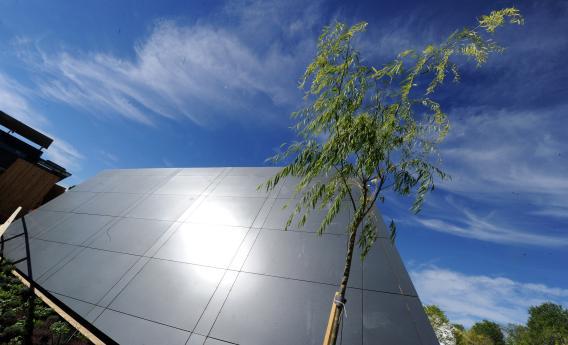Every few years I feel like someone discovers the idea that instead of trying to fight global warming with an unpopular new tax on dirty energy (bummer!), we should instead try to fight it with popular subsidies for exciting new green energy (hooray!), the funding for which will presumably presumably emerge via some unspecified popular tax.
Today it’s Noah Smith in the Atlantic with particular enthusiasm for rapid, recent developments in solar technology.
I’m going to take a lonely stand in defense of carbon taxes. For starters, the idea that for a carbon tax to work “it has to be global—implemented by most or all industrial countries—or else carbon-emitting activity will just migrate to whichever country has the weakest standards” would be true if the only use of fossil fuel was to produce tradeable manufactured goods. But that’s plainly not the case. You’re not going to import cool air from China in the face of a carbon tax. You’ll either make do with less air conditioning, switch to a cleaner form of electricity to power your A/C, improve your home’s insulation, or some other carbon-reducing behavioral response. In fact, we might want to consider a hefty carbon tax with a special exemption for manufacturing paired with some mechanism for ratcheting the exemption down if more countries join Team Carbon Tax.
Relatedly, fossil fuel is used for more than just electricity. It’s not obvious that electrical cars will ever be cost-competitive with the internal combustion engine absent carbon emissions fees or gas taxes, and a lot of energy is used for home heating. Carbon taxes encourage electrification and efficiency in these key areas.
Another issue is that fossil fuel extractors are allowed to innovate, too. Recently we’ve seen huge forward strides in the field of cleaner-than-coal-but-dirtier-than-solar natural gas. We’ve also seen big forward strides in solar. So progress—it’s amazing! But technological progress in coal extraction is also something that could happen, throwing the economics off. Meanwhile, producing solar power when the sun is shining is one problem, and right now we use so few renewables that advancing in our capacity to do this is a huge winner. But at some point you do run into the problem that the sun’s not always shining, and it’s less clear that we’re making progress there. Meanwhile, recall that in poor countries bounceback can be a big deal. Cheap natural gas has reduced emissions in the United States, but if it gets cheap enough, it could easily end up increasing emissions in places that right now are just so poor that they don’t use much electricity.
Last but by no means least the government still needs revenue. It needs revenue to fund these solar subsidies, it needs revenue to pay teachers and cops, it needs revenue to fund Medicare and Medicaid, it needs revenue. There’s room for some kind of conservatives-for-solar-subsidies movement, but the vast majority of the people to whom these clean-energy causes appeal are the very same people who think the federal government’s tax revenue should rise. That’s a hard political fight right there. Why not make it a fight for a form of revenue increases that also have huge environmental benefits?
